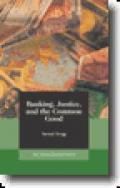


Immediately after watching For Greater Glory, I found myself struggling to appreciate the myriad good intentions, talents and the $40 million that went into making it. Unlike the Cristeros who fought against the Mexican government, however, my efforts ultimately were unsuccessful.
The film opened on a relatively limited 757 screens this past weekend, grossing $1.8 million and earning the No. 10 position of all films currently in theatrical release. Additionally, the film reportedly has been doing boffo at the Mexican box office. Clearly, word of mouth and the temperament of the times are driving folks to see a movie wherein good es evil, and, more specifically, militarily enforced secularism is defeated by religiously faithful armed-to-the-teeth underdogs.
It’s not that the subject matter of For Greater Glory isn’t historically accurate pelling. Nearly 10 years after the Mexican Revolution, President Plutarco Calles decides to enforce the anti-clerical laws written into the 1917 Mexican Constitution. Calles (portrayed blandly if not refreshingly free of Snidely Whiplash mustache-twirling by the otherwise fine actor and recording artist Ruben Blades) forced not only the closure of Catholic schools, but also the expulsion of foreign clergy. His oppression hat-trick pleted by the government confiscation of Church property. When the archbishop of Mexico City expressed his concerns, Calles had his agents bomb the archbishop’s home and the chapel of Our Lady of Guadalupe.
Students of literature will recall the Cristeros War as the background of Graham Greene’s masterpiece The Power and the Glory, centered on the felix culpa experienced by the Whiskey Priest. In that novel, Greene personalizes spiritual doubt in the face of secular oppression, allegorizing the larger war with the spiritual war raging within the soul of its protagonist. For Greater Glory, on the other hand, travels the reverse route by largely ignoring the personal in favor of bined efforts of fighting the Mexican government’s political and military might.
Unfortunately, the movie fails as both agitprop and spiritual allegory – a tricky proposition at best but mon drawback to sweeping epics operating on a broad canvas. Characters in the film flit in and out, looking alternately frightened, piously determined and – fatal to a film with such lofty ambitions – aimless. Some characters disappear somewhere for 20 minutes of screen time and reappear to repeat the cycle. The result is a one-dimensional portrayal of the struggles that claimed an estimated 90,000 to 200,000 lives and where the surviving film characters more or less end the film much as they began.
Andy Garcia, an admirable thespian who lacks the necessary star power to carry a film with War and Peace aspirations, portrays Gen. Enrique Gorostieta Valarde, an atheist married to a devout wife (played in several brief scenes by the beautiful “Desperate Housewives” star Eva Longoria). In the film, Valarde’s spiritual journey is half-heartedly depicted, perhaps because the verdict is still out as to whether he experienced a genuine conversion or was more a mercenary than missionary.
For this critic, however, the film begs an even larger existential question central to Christianity as a whole. Specifically: When are we Christians supposed to forgive our oppressors, and when are we justified in the killing of them? For Greater Glory wants it both ways. On the one hand, it depicts saintly priests, including one portrayed by Peter O’Toole, as beatifically accepting their fate at the hands of Mexican soldiers, and – as did Christ – forgiving those who would deprive them of life. On the other hand, Mexican civilians and clergy unite as an armed insurgency rebelling against their government oppressors. Are we supposed to cheer on priests wielding weapons antagonistically as in a Robert Rodriquez grind-house film?
Or, conversely, are we to adhere to example of the Jesus depicted in The Passion of the Christ? Remember that Jesus, too, lived in religiously oppressed times, but He didn’t enlist armies to attack the Romans who subjugated Him and his followers. Time wounds all heels, to mangle a phrase. The Romans received their just desserts over time, while Christianity rose from the gore of Christ’s crucifixion and the deaths of the apostles and martyrs.
In the end, peace in the Cristero War eventually was determined more by economic and political means than by military victory – as noted all too briefly in For Greater Glory. Calvin Coolidge’s Ambassador to Mexico helped broker the peace by convincing President Calles that panies were reluctant to conduct business in the country if they persistently witnessed bodies hanging from telegraph poles and butchered in the streets.
For Greater Glory raises a question germane also to The Passion of the Christ, which is how many violent acts are audiences supposed to tolerate in the guise of spiritual uplift? Saving an equivocal defense of the Grand Guignol aspects of the Passion (as the victim was an adult male) the sadistic torture endured by the adolescent Blessed Jose Sanchez del Rio in For Greater Glory is truly disturbing to watch and more than earns the film its R-rating.
On a final note, I realize many readers of this essay and viewers of For Greater Glory will draw analogies between the oppression of Mexican Catholics under Calles and the current state of U.S. public policy designed to circumvent, disregard or neutralize Catholic doctrines, but I hold that this is a parison requiring some perspective. As despicable as some of the current administration’s policies are to those who value religious freedom, they hardly match Calles’ deportation of priests and bishops, bombing of chapels and the slaughter of innocents.









